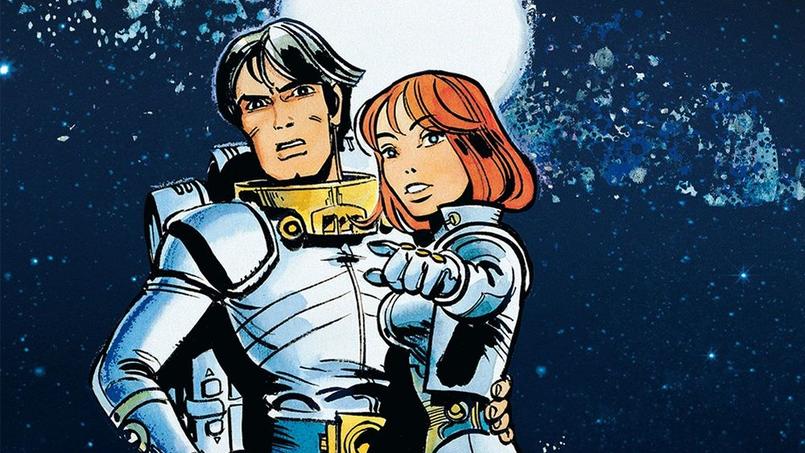Emperor_Uriel
Member

Full Atlantic Article
The French comic series Valérian and Laureline, newly adapted into a summer blockbuster, gave the genre one of its first protagonists to powerfully own her womanhood.
...
In the 50 years since its inception, Valérian and Laureline has had a significant influence on sci-fi, including films like The Fifth Element and the Star Wars series... And despite the adoration of fans like Besson, and predating sci-fi heroines like Star Wars Princess Leia and Aliens Ellen Ripley, Laureline herself rarely receives the critical attention she deserves. Arguably the heart of the comics, shes a remarkably powerful, and believable, feminist figure who still resonates today as a very modern heroinethough Laureline first arrived in an age when women in sci-fi were rarely presented as more than crude stereotypes.
Laureline thus appeared in an age that needed her. In the simplest sense, she was a female protagonist in a genre that sorely lacked such characters. But more meaningfully, she was, from the start, a radically impressive figure who set the bar high for women in science fiction. No mere beautiful figure, Laureline has a piercing intellect, a near-indomitable pride in herself, an endearing but acid wit, and formidable fighting skills. And yet she resists being an archetype of female perfection.
...
Laurelines creators did not stumble upon this winning combination of traits: Her character has its roots in feminist movements and texts, including Simone de Beauvoirs foundational work The Second Sex. You do not read [The Second Sex] with impunity, Christin told the comics artist, Mézières, in 2001 when asked about the inspiration for Laureline. He added that feminism in the United States in the mid-20th century and the rise of women as real protagonists in all fields had also caught his eye.
Very compelling article that serves as a decent template on "how to write a strong and realistically flawed female character." I had never heard of this series until recently, and it's very interesting to read through it and see all of the direct parallels to Star Wars and other modern Sci-Fi series. I'll definitely be checking out the movie if the initial impressions are good.
What really stuck out to me most of all though, was this piece that discusses how the author pushed back against the idea that feminism and heterosexual relationships were incompatible. In an era where such relationships are regularly poo-pooed for feeling contrived or hammy, this comic seemed truly ahead of it's time.
The duos deep connection doesnt undermine Laurelines sense of purpose. In On the False Earth, Laureline is forced to watch disturbing videos of clones of Valérian dying on a mission, and shes chastised by her commander, Jadna, for her distressed reactions. Jadna insists Laureline is only suffering because she is still beholden to male supremacy, to orienting her life as a woman around men. Laureline, fragile here and yet wiser than Jadna, thinks furiously, You stupid cow. If you think for a minute its because of male supremacy I love my man ... This is the series less mechanicaland more empatheticfeminist message: that people can acknowledge patriarchal and systemic oppression without policing who they love.
